Venerable Clement Arowolo is the vicar of St. John’s Anglican Church Iju-Ishaga, Lagos. The archdeacon of Iju Ishaga Archdeaconry in the Diocese of Lagos West tells about childhood and journey to priesthood
How will you describe your childhood?
I was born in Ilorin, Kwara State, on March 22, 1962. I thank God I was born in Ilorin because it was a place of love then, I don’t know about now. At that time, there was a demonstration of love among the people, especially those who were not from the place. Those of us who were not from Ilorin lived around Murtala, Taiwo Road, and Sabo Oke. At that time, children were trained not only by their parents. Training a child was a communal responsibility. They did not need the permission of the children’s parents to instill indiscipline in them. We were all disciplined.
The type of training I received no longer exists. I can remember when I came to Lagos for the first time. When a child saw an elderly person standing on a bus, the child would offer the elderly person his seat. But nowadays, the child would even warn the elderly person that, “Baba, be careful o. Don’t ever try that”. There is no respect and discipline anymore. Those days, parents would ask questions if they saw their children with strangers. But parents these days have failed because discipline no longer exists. In those days, we did not dare to sit in the sitting room when our parents had visitors. They would give us a sign, using their legs or hands, for us to take our leave. But nowadays, children would not only remain in the sitting room but also contribute to discussions that don’t concern them. So, modern parents should go back to the drawing board and see where they have failed and try to fix things.
What was your dream as a child?
I wanted to become a businessman. That was my plan.
What kind of parents did you have?
My parents have passed on. My dad was the king of my village in the Ijero Local Government Area of Ekiti State. My mother was from Osun State.
How many wives did your father have as an oba?
He had many wives and I don’t know all of them. You don’t ask an oba how many wives and children he has.
Did you live in the palace?
I was not born in the palace. My mother moved to Ilorin when she saw the atmosphere in the palace. She started her own business in Ilorin.
What was the atmosphere like in the palace?
At that time, my mother was not educated but she had some brothers who were always there for us. For example, after spending some time in Ilorin, she sent us to one of her brothers, who was a teacher, to live with him. You know the lifestyle of teachers. We used to wake up at 4am, go to the farm, and later go to school from the farm without having breakfast. My uncle used to send some of his students to watch whether we would beg people for food. It was at the close of school that we went home to cook a species of beans that took three hours to soften. My uncle did not go to church but made sure that we attended services on Sunday. That probably took us closer to God at a tender age.
In a recent interview, you said a prophetess told your mother that you would not survive an illness you had at 14. Can you shed more light on that?
Yes. I was totally down. My mother was a member of the Cherubim and Seraphim Church who believed in prophets. She was so confused at that time that she invited one of them, a prophetess, to pray for me. While she (the prophetess) was praying, she needed to say something, so she told my mother to forget me because I was already gone (wouldn’t survive). But immediately, I rejected it. From my sickbed, I said to the prophetess, “Mama, I will not die! It is you who will die!” My mother wanted to beat me for that but I dodged her. It is better to reject things that are not meant for you. That was why I celebrated my birthday when I clocked 60 because it was not by my power.
You were ordained as a priest in 1990. What motivated you to become a cleric?
When God calls you, it is not possible to dodge the call. If you try to dodge, whatever else you do will not prosper. I tried my hands on a lot of things after secondary school. Some of my friends were surprised when I told them I wanted to become a priest. They said I had decided to become a poor man. They made fun of me. In those days, you would hardly see priests driving vehicles. You would either see them trekking or riding bicycles. So, some of my friends wondered why I wanted to become a priest because they knew the lifestyle of priests. But I told them there was nothing I could do about it; I had tried other things and failed.
When God says it is time, there is nothing one can do about it. When I told my father that I was ready to become a priest, he took me to a former primate of the Church of Nigeria, Anglican Communion, and the primate was happy to see a young boy like me willing to join the ministry. He gave me some of the things I needed for my training. He sent me to the late Bishop (Peter) Adebiyi and he trained me for over three years. When Baba Adebiyi was posted to Archbishop Vining Memorial Church, Ikeja, Lagos, he took me along. When we got to Lagos, I told him I wanted to go to a theological school. He gave me a letter and instructed me to go to Bishop Vining Theological School, Akure, Ondo State, in 1987, and I was a special candidate by the grace of God. I was later moved to Lagos and ordained as a priest.
What were some of your memorable moments during your training to become a priest?
There were times I thought about leaving the theological school because I saw that some of my peers were making it in business, while as a catechist, I received only N102 as a stipend. Also, I remember that after our ordination course, we were taken to a sea school in Apapa and instructed to jump into the ocean. Some of us from Kwara and Ekiti states initially refused to do that even with a life jacket on because we did not trust the jackets. But we later jumped. During our training, we went to different villages for evangelism to minister to people, including smokers. Some of them threatened to deal with us but we were not discouraged. My early years as a priest were not easy. I received only N201 as monthly stipend.
Apart from the education you received at the theology school, did you attend any other higher institution of learning?
I attended Ekiti State University where I got a degree in Divinity.
How did you handle distractions as a young priest?
I was among the youngest set of men that were ordained as priests. At that time, we noticed many young ladies were looking at us and feeling we were marriageable and could be interested. I remember one lady promised to give me a car on my wedding day if I married her. Having a car as a young man would have changed my level and I nearly fell for it but God saved me from entering into that trap. In those days, young men were hardly concerned about the age or genotype of the ladies they wanted to marry. It was one of my younger sisters that told me that the lady promising me a car was older than I was. When I realised it, I wondered how I would have been able to manage a wife older than me.
How did you find your wife?
I used to visit my mother in Ilorin at the end of each month to give her some things. On one of those occasions, I saw my sister and some ladies with my mother. I called my sister aside and told her I was interested in one of them. My sister advised me to talk to the lady if I was serious about what I said. The lady is from Delta State but my community believes a prince should not marry a lady who is not Yoruba because it could work against his sons’ chances of becoming an oba. But I told them I was more interested in a woman that would understand me, take care of me and give me peace of mind. My parents did not agree with my decision but I told them I would marry the lady from Delta.
At the end of the day, they left me. I was serving in a small church when I started making arrangement to get married. My people abandoned me when they learnt I wanted to marry the Delta lady; they said they would not be a part of it. But three days before my wedding, when I was looking for money to buy what I needed for the wedding, I saw two big cows and some bags of rice at my residence donated by a man. The youths in my area also contributed money and bought bags of water and drinks. A man in one of the churches where I served called me and gave me some money.
Do you think it would have been a mistake if you did not marry the woman you chose?
I thank God I did not make that mistake because I don’t know what would have happened to me. One thing parents should learn is not to discourage their children from marrying who they choose for tribal reasons. I probably would not have enjoyed peace if I married someone from my village.
What did you see in your wife that made you stick to your guns about marrying her?
She is content. She was a teacher in a military school in Ilorin but used to come to Lagos to give me her salary because she felt my salary could not take care of me. I had to force her to take some of the money she brought. I looked at her and did not find a fault; that is why we are together today. That is why we have not shouted at each other. I know that people would say it is not possible but it is possible when God gives you your helper. She is always there for me. You would hardly know she is from Delta State when she speaks Yoruba because she was born in Lagos. Her father supported the marriage but some of his people did not. Sadly, he died before the wedding. On his sickbed, he warned that the wrath of God would be on his people if they failed to allow his daughter to marry me. So, they had no option but to support us.
Did you ever have any interest in becoming an oba like your dad?
Ah! No! I have never used ‘prince’ as a title. I have never introduced myself as a prince to anybody. I did not have any interest. It is now that obas get money here and there. In those days, there was nothing like that. I lost interest completely. Nobody can come to me and tell me to become an oba. Me? It can’t happen. That possibility is over. I can’t serve God and go back because being an oba, one would be introduced to some ungodly things.
You turned 60 in March. Looking back, do you have any regrets?
I will not say I have any regrets in life because God has been there for me. I didn’t think I would get to this age. I celebrate my birthday once in 10 years. When I was at Ogudu, I celebrated my 40th birthday. At St. Paul’s, Isolo, I celebrated my 50th. So, God has never failed me. I had a building project that I could not complete due to lack of funds. But a man helped me to complete it and just handed the keys to me.
The level of insecurity in the country is a major concern for many Nigerians. What are your thoughts about it?
We should not lose hope. We should continue to pray for our leaders. There is no need for trading blame. We will continue to pray for them (leaders). Nigeria was not like this before. So, we will continue to pray. There is nothing God cannot do. I know things will work in this country.
Recently, the Chief Imam of Apo Legislative Quarters Mosque, Abuja was sacked for criticising the President, Major General Muhammadu Buhari (retd.). What’s your reaction to that?
I read it yesterday (Monday) but I didn’t go into details. That is why I told you we need to pray because it is not easy to be a leader.
Credit: PUNCH Newspapers


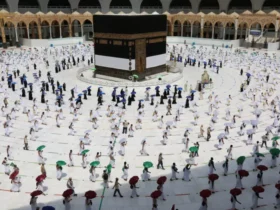
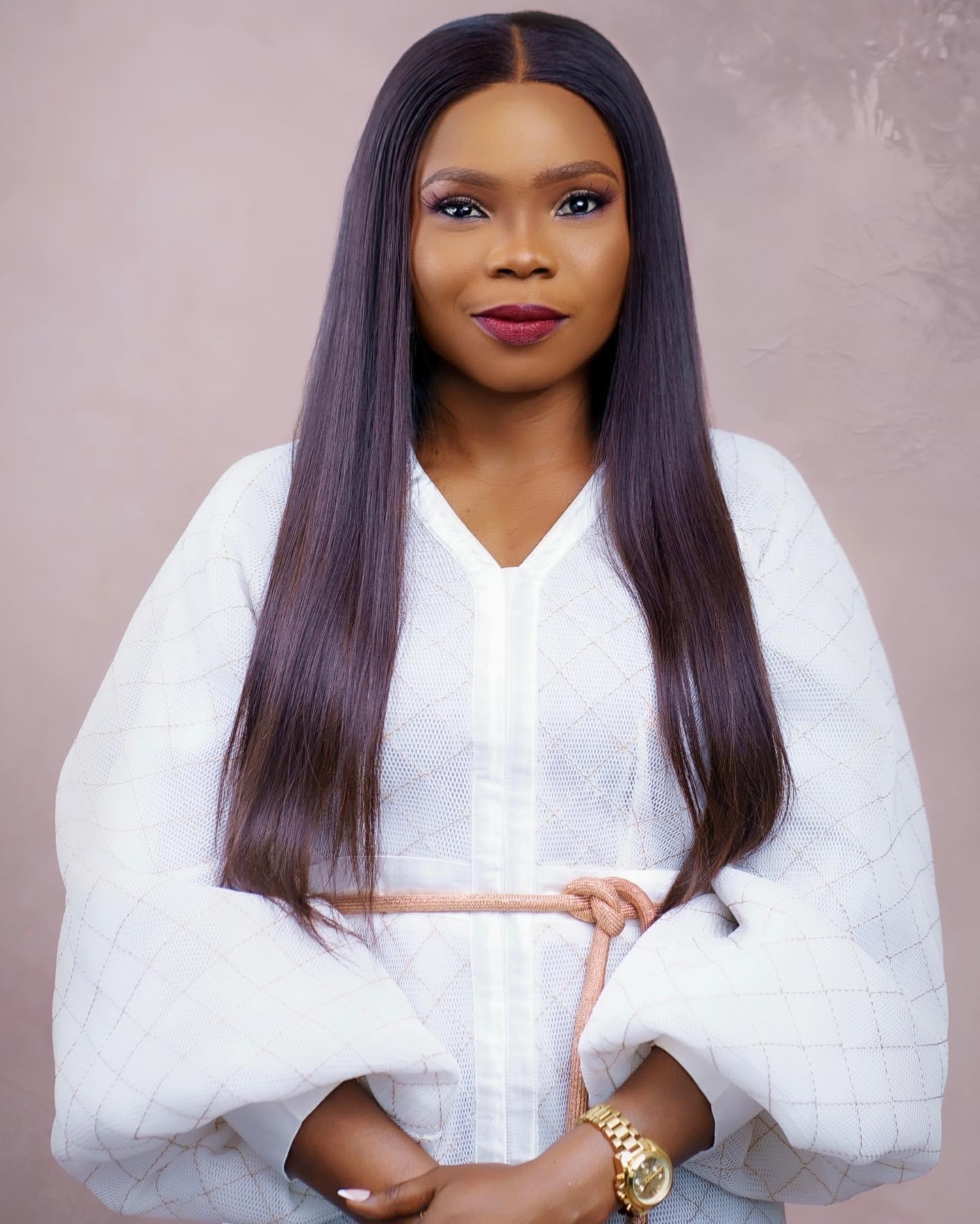
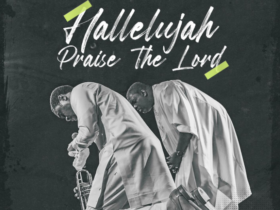


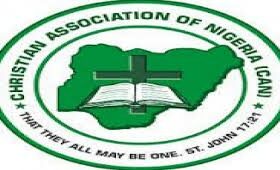


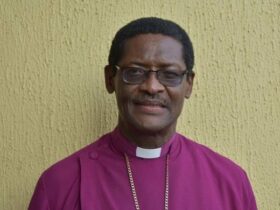

Leave a Reply